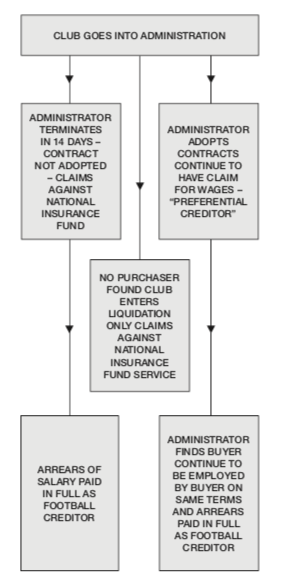The Football Creditors Rule – What does it Mean for you?

FMPA Laywer Martin Price explains…
Unfortunately, the recent financial issues at Bolton and at Bury have brought the issue of insolvency within football clubs into sharp focus once more.
On the face of it a football club is no different to any other limited company and therefore an employee’s employment law rights should the club become insolvent are limited. These rights depend upon which legal form of insolvency the club enters into, the most common one being administration and less common but more terminal, liquidation.
In an administration the employer becomes XYZ Football Club Limited (in administration). The administrators do not become your employer, they act as agents for the company in administration with a view to selling the club as a going concern or realising the value of assets for the benefit of the creditors. If no sale can be achieved it is almost inevitable that the club would enter liquidation, which spells the end of the road for the club.
If the administrators continue to employ you for 14 days or more after their appointment they will “adopt” your contract of employment. This means that wages and salaries (including holiday pay) which accrue after the 14-day period will have to be paid ahead of the administrator’s fees and any payments to other unsecured creditors. For this reason, unless there is a strong possibility of a sale, administrators will be very reluctant to adopt the employment contracts of all but the most crucial employees. In a football context this might be a player still under contract who has a significant transfer value.
In an administration arrears of salary are limited to maximum of £800 as “preferential debts” which are payable in full after anyone who has a secured debt and the costs of the administration. In practice, it is unusual for there to be enough money left over for the payment of preferential debts.
Assuming that your contract is not “adopted” then debts owed by the club to you under your contract of employment will be unsecured debts and therefore it is very unlikely that you would get any more than a few pence in the pound should the club exit administration by way of a negotiated deal with the creditors.
In addition, whether or not your contracts have been adopted, certain further payments can be claimed from the government’s national insurance fund. These are:-
• Arrears of a maximum of 8 weeks’ pay (capped at a maximum of £525 per week)
• Notice pay of one week (capped at a maximum of £525) for every complete year of service up to a maximum of 12 weeks
• A maximum of 6 weeks accrued but untaken holiday pay, again subject to a maximum of £525 for each week.
So, if your club goes into administration and your contract is not adopted then your entitlements are very limited if the administrator does not find a buyer and the club goes into liquidation. If your contract is adopted, then the position becomes slightly better but in reality not much better should a buyer not be found and liquidation follows.
Looking at things more positively, what if the administrator finds a buyer? This happens in the majority of cases. If you are still employed by the club at the time it is sold, then your contract automatically transfers to the buyer and continues with that buyer e.g. XYZ (2019) Football Club Limited. The new company will also be liable for your arrears of salary over and above the amount that can be claimed from the national insurance fund.
If you have been dismissed by the administrator prior to the purchase, then generally unfortunately you are limited to the amounts you can claim from the national insurance fund as set out above.
So where does the football creditors rule come in and how does it help?
In order to compete in the English Football League (“EFL”) or Premier League, all clubs must hold a share in the EFL or Premier League – the so-called “Golden Share”. The Golden Share can only be transferred from
XYZ Football Club Limited in administration to XYZ (2019) Football Club Limited with the permission of the EFL or Premier League.
The EFL or Premier League will only ratify the transfer of the Golden Share if football creditors are paid in full by the purchaser. As, in effect the club is worthless without the ability to play in the EFL or Premier League, the purchaser’s hands are tied – they must satisfy football creditors in full if they want to play in the EFL or Premier League. Football creditors are defined as the League, other clubs and full-time employees of the club. This includes not only players and managers but all full-time backroom staff.
If you are a football creditor, your arrears of pay must be paid in full before the Golden Share will be transferred. If you have left the club, your arrears must still be met in full i.e. you will not be subject to the £800 cap and you are in a much better position. If you are still employed by the club in administration at the point of transfer, not only do your arrears of pay have to be paid in full but also your contract will transfer to the new owner on the same terms thus preserving your future rights too.
This is a technical and complicated area and so I have tried to summarise it in the diagram above. As always if you are worried contact Eamonn and his team and you will be signposted to the necessary advice. Contact the FMPA on 0333 4567897 or email info@fmpa.co.uk



